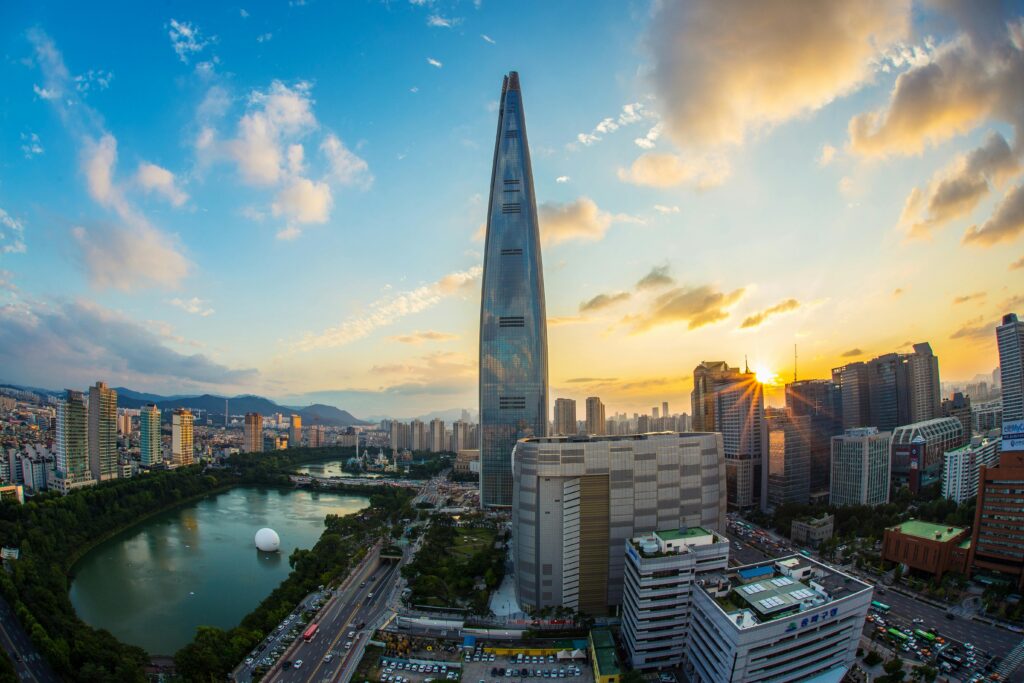South Korea, a nation that has remarkably transformed its image from a war-torn country to a global cultural powerhouse, stands as a testament to the power of cultural diplomacy. Through strategic exportation of its culture, South Korea has not only bolstered its international image but also played a pivotal role in shaping its foreign policy and international relations.

The Hallyu Wave: Spreading Korean Culture Globally
The cornerstone of South Korea’s cultural diplomacy is the “Hallyu” wave, or Korean Wave, which refers to the global popularity of South Korea’s cultural economy including music, movies, dramas, and cuisine. K-Pop bands like BTS and BLACKPINK, films such as “Parasite,” and the global phenomenon of Korean dramas have captivated audiences worldwide, creating a fervent international fanbase. This cultural export has not only generated significant economic value but has also served as a bridge for cultural exchange, fostering a deeper understanding and appreciation of Korean culture globally.
Strengthening Bilateral Relations Through Cultural Exchange
South Korea has skillfully utilized cultural diplomacy to strengthen its bilateral relations with various countries. Cultural exchange programs, Korean language courses offered through the King Sejong Institute, and the organization of Korean cultural festivals abroad are prime examples. These initiatives aim to build cultural bridges, enhance mutual understanding, and foster people-to-people connections, laying a solid foundation for stronger diplomatic and economic relations.
An exemplary case of cultural diplomacy strengthening bilateral relations is South Korea’s partnership with ASEAN (Association of Southeast Asian Nations). Through the “New Southern Policy,” South Korea aims to deepen its ties with ASEAN countries by promoting cultural exchanges, economic cooperation, and people-to-people contacts. The policy highlights the role of cultural diplomacy in South Korea’s strategy to diversify its diplomatic and economic partners and reduce its dependency on traditional allies.
Enhancing Geopolitical Influence Through International Collaborations
Beyond strengthening bilateral relations, South Korea’s cultural diplomacy has enhanced its geopolitical influence on the global stage. International collaborations, such as co-productions in the entertainment industry and partnerships in the cultural sector, have allowed South Korea to extend its cultural reach and influence. These collaborations not only amplify the global impact of Korean culture but also enable South Korea to engage with a broader international audience, thereby increasing its soft power.
The collaboration between South Korean entertainment companies and global streaming platforms like Netflix is a prime example. By distributing Korean content globally, these collaborations have not only expanded the audience for Korean culture but also positioned South Korea as a key player in the global entertainment industry. This, in turn, has contributed to South Korea’s influence in international media and entertainment discussions.
Challenges and Opportunities
While South Korea’s use of cultural diplomacy has yielded significant benefits, it also faces challenges. Cultural over-saturation, resistance to cultural imperialism, and the need for cultural sensitivity in diverse markets are concerns that South Korea must navigate. Moreover, the dynamic nature of cultural tastes requires constant innovation and adaptation to maintain global interest and influence.
Despite these challenges, the opportunities for South Korea through cultural diplomacy are vast. By continuing to foster cultural exchanges, invest in global cultural collaborations, and innovate within its cultural industries, South Korea can sustain and expand its soft power. Furthermore, engaging in cultural diplomacy initiatives that address global challenges, such as climate change and social inequality, can enhance South Korea’s international reputation as a responsible and proactive global actor.
South Korea’s strategic use of cultural diplomacy has significantly contributed to its international relations and geopolitical influence. Through the export of its vibrant culture, fostering of bilateral relations through cultural exchange, and engagement in international collaborations, South Korea has demonstrated the potential of cultural diplomacy as a soft power tool. As South Korea continues to navigate the complexities of global diplomacy, its commitment to sharing its culture with the world remains a testament to the power of cultural exchange in building bridges between nations.
